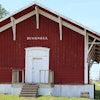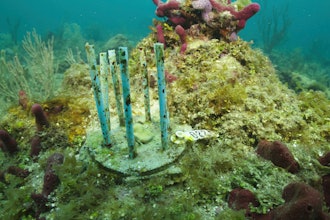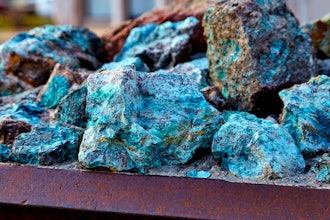JACKSON, Miss. (AP) -- Six executives of a Louisiana company that recycles explosives have pleaded not guilty as part of an investigation into the storage of millions of pounds of military propellant, a discovery that lead to the evacuation of a nearby small town.
The Webster Parish district attorney's office says the men entered their pleas Monday. A status conference is scheduled for Sept. 30 and trial for Nov. 4.
Explo Systems Inc., its owners, David Fincher and David Smith, and four employees face 10 felony charges each.
Lawyers for Fincher and Smith did not immediately respond to telephone messages on Wednesday.
Explo Systems had a multimillion-dollar military contract to dismantle propelling charges used to fire artillery rounds. The company operated on space leased at Camp Minden, a Louisiana National Guard installation in northwest Louisiana.
An explosion last October led to an investigation. A Louisiana State Police investigator later discovered what authorities considered millions of pounds of an improperly stored propellant called M6, leading to the evacuation of nearby Doyline, the town known as the backdrop for the TV series "True Blood."
Louisiana State Police officials stripped Explo Systems of its explosives license on May 20, but the company later sued to get it back, saying the "allegedly improperly stored materials are not explosive, nor are they within the jurisdiction" of the state police.
The indictment consists of five charges apiece relating to explosives storage, and five conspiracy charges.
Authorities said the M6 should have been stored in certified magazines — sometimes called bunkers — but some of it was found in boxes stacked in buildings, packed into long corridors that connect the buildings or "hidden" among trees outside. Some of the containers were spilling open, authorities said.
Authorities feared any ignition — like a brush fire or lightning — could set off a massive chain reaction that would race through the corridors and blow up multiple buildings, threatening Doyline. Its 800 residents were put under a voluntary evacuation order for several days in December.
State police monitored the movement of the material, which took months as some of it was sold to other companies and the Guard provided additional space at the installation.
More 10 million pounds of the material was eventually stored properly and Explo relinquished its keys to the magazines at the installation. Also, state police said, about 100,000 pounds of flammable solid material and 130,000 pounds of Tritonal were moved to proper storage locations.
Explo said in its lawsuit that the state's actions were unconstitutional.






















